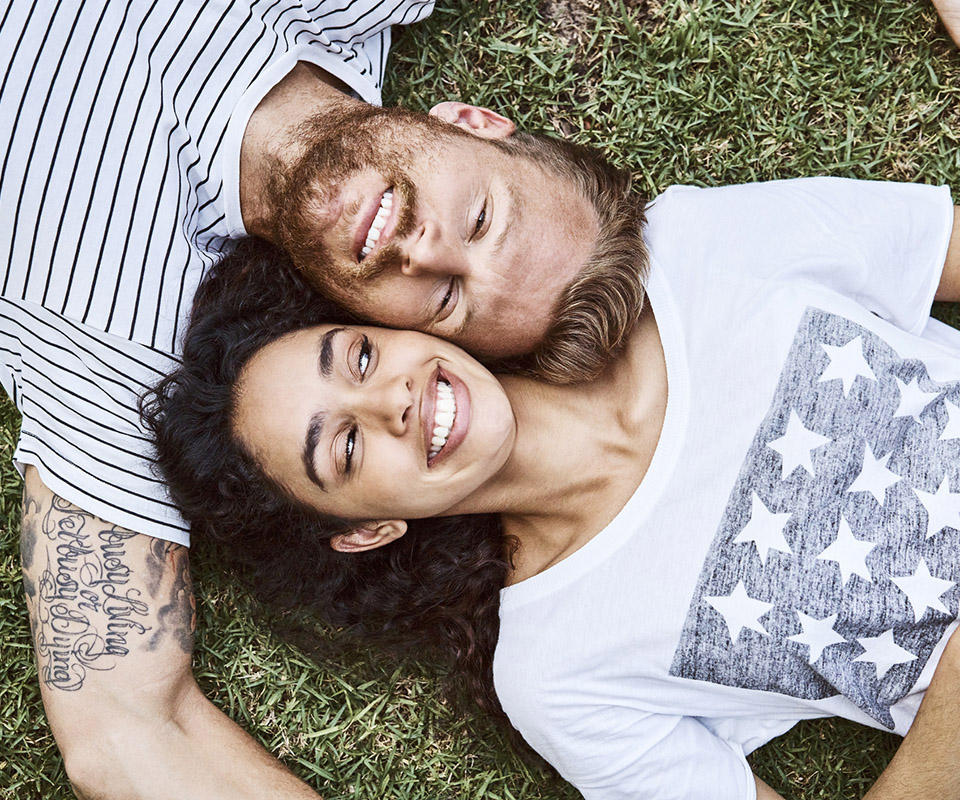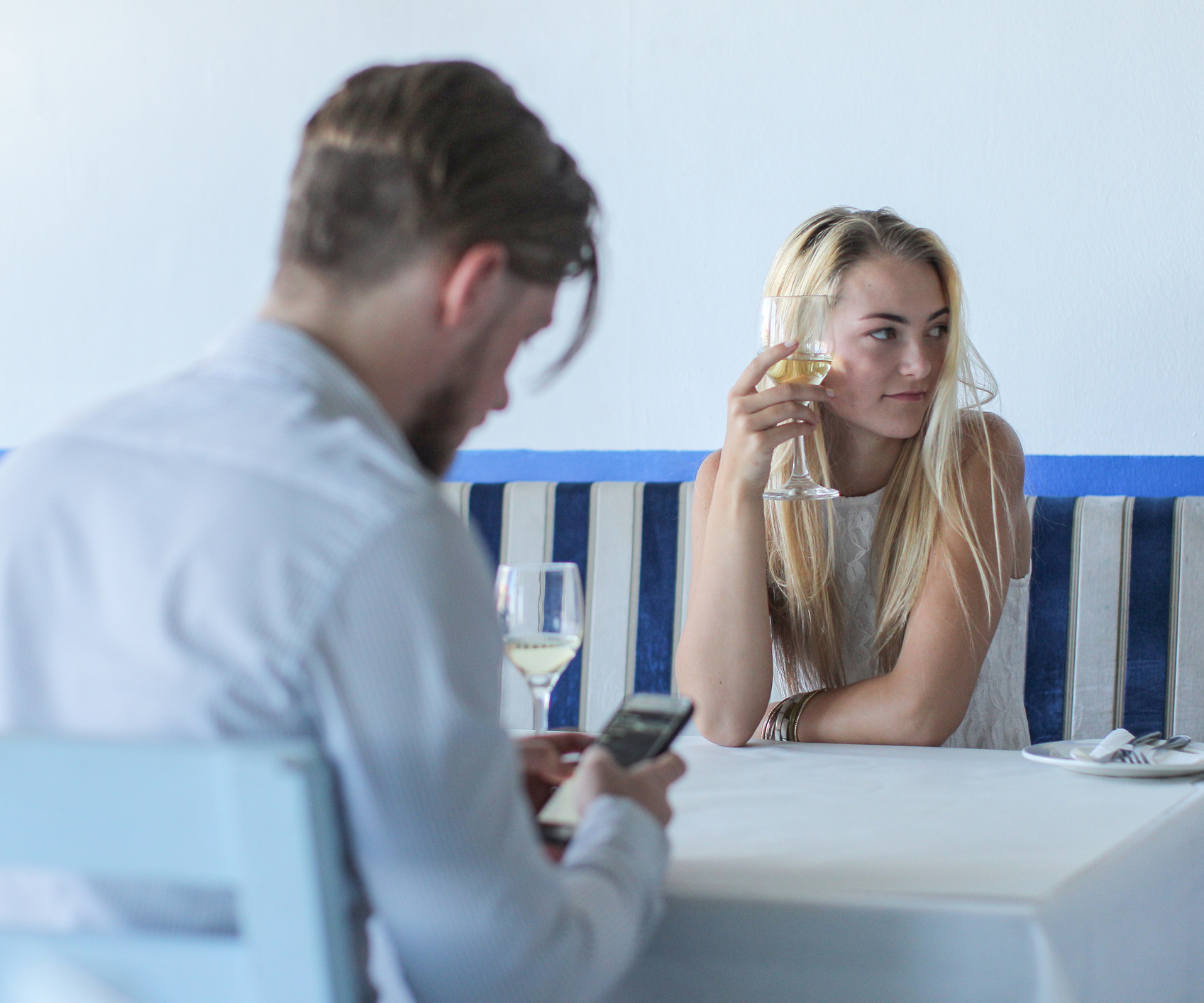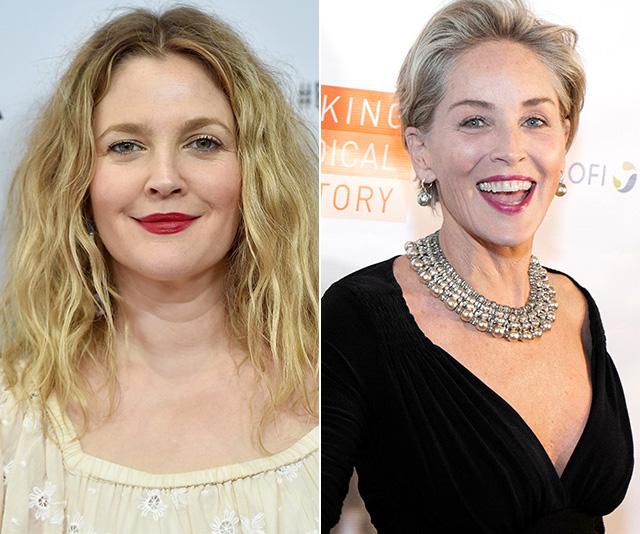If you’re someone who isn’t married or in a relationship in New Zealand today, then chances are you’re already proficient in the art of swiping left or right.
While a mere six or so years ago romance seekers may have turned to a night out at their local watering hole, or good mates for a set-up in the hope of finding Mr Right, nowadays the primary vehicle for finding love is your smartphone.
“The world has changed,” says couples and singles counsellor, Melissa Ferrari.
“Technology has become such an interwoven part of our lives and online dating apps are a by-product of this.”
Mobile geolocation dating apps only really began to be widely used over the last 10 or so years. But it was the 2012 launch of Tinder that proved to be the real game-changer.
Revolutionising how we date – and mate – the app has reported that its 50 million-plus users swipe through billions of profiles annually (it also took the top spot on Apple’s highest grossing app chart).
Given this staggering success, unsurprisingly a slew of similar apps have followed in its wake.
And while now it might be hard to imagine a world without this virtual matchmaking, in reality these apps are in their infancy, which means that studies into the impact they’ve had on our mental health has been under-researched and the studies that have been undertaken over the last five or so years are only now starting to analyse results; and so far, they don’t bode well.

On the surface these apps offer a seemingly endless number of potential suitors. And more choice is better, right?
Well, not necessarily.
Various studies have been conducted into how having too much choice – whether it’s on a menu or with potential partners – can leave us anxious and less satisfied.
Some academics have also argued that this leads to a throwaway society where humans are also disposable.
Research by psychologist Barry Schwatz in his book Paradox of Choice has shown that even though we like having more options when making a decision, we are less satisfied with our choice the more options we have.
Instead of being happier, more choice increases levels of anxiety and depression.
“Scientists have mapped out how choice overload actually causes our minds to back off from making a decision,” says dating and relationship expert, Debbie Rivers.
“It explains why we often walk away from a well-stocked shop or supermarket empty-handed.”
For users confronted by this seemingly overwhelming array of options you can understand why a reluctance to settle may develop, especially when a new round of matches are only a swipe away.
Plus, with more choice comes an escalation in expectations – matches and potential matches can be disliked, ignored or deleted on a whim.
No abs? Next. Eyes that aren’t perfectly symmetrical? Move on.

Dating apps have millions of users, and users may be simultaneously messaging many other users. This can lead to a superficial breadth, rather than meaningful depth, of connections.
“Too much choice also means people look for perfection,” says relationship expert and dating agency founder, Samantha Jayne.
“They obsess about the little things that don’t matter because they worry that something better is out there. Instead of allowing a connection to happen organically they worry about making a mistake or missing out on the one when the one could be right in front of them.”
Yet, despite the abundant choices, the irony is that there are more single people now than at any other point in history.
“The horrible fact is fewer relationships happen now than they did a decade ago due to the belief that there is more choice than there is,” continues Debbie.
In summary, these apps expose us to more potential partners than ever, yet the chances of a romantic relationship have been reduced. That’s a sobering thought indeed.
While anyone who has been in a relationship that has lasted longer than a few weeks knows that looks rank further down the priority list in terms of the building blocks for a successful relationship, it’s undeniable that the initial ‘hook’ on any app is the profile picture.
Essentially a contemporary ‘hot-or-not’ – profiles on apps condense your entire being into a few pictures and a few sentences.
Search criteria also means that you can be screened out based on age, ethnicity, body type, and, obviously, location.
But, of course, it’s the money shot – that all important profile pic – that’s key.
It’s little wonder that these apps are partly fuelling the fire of our narcissism and making us agonise over curating and filtering our profile pics, in addition to making us question our physical appearance.
Research has found a link between app use and self-worth indicators, such as body satisfaction and self-objectification.
A recent study, presented at the American Psychological Association, suggested that dating apps can reduce self-esteem and create a negative perception of body image. And these feelings don’t just manifest in women, surprisingly men are more hard hit.
“Research has shown it’s often tougher on men,” says Debbie.
“Their self-esteem has been shown to be impacted more due to the rejection they suffer online.”
Plus, the focus on appearance dramatically narrows the zone for falling for someone because of that unquantifiable mystery that is human attraction, which, as we know, can’t be boiled down to a picture or two.

Ghosting, cat fishing, benching… the advent of dating apps has led to an entirely new glossary of terms, all of them bad.
The relative anonymity that a device brings out can result in some seriously bad behaviour.
“One of the most obvious and concerning byproducts of dating apps is they have created a whole set of poor behaviours in which the user is unaccountable for their actions,” says relationship coach, Louanne Ward.
“It has become part of the dating culture to ghost people, misrepresent themselves, date multiple people at the same time and generally be non-committal to other people’s feelings or needs.”
Whereas in the past we met at work, through mutual friends or at social venues; now, users can hide behind their smartphones and can easily lie about their age, looks, profession and intentions.
Then there’s the demoralising feeling of not having a message replied to and the afore mentioned ‘ghosting’ – the sudden ending of a chat or relationship without any explanation.
“It’s no secret that dating apps are changing our behaviour,” says Samantha.
“The de-humanising element is unfortunately part of online dating for some people and there can be the temptation to deceive with little emotional consequences. It’s important to be able to identify the game players versus the ones looking for love.”

Though exposure to the harsher dating app climate can cause a thick skin epidemic, it’s easy to remedy.
Set the tone and make sure your own moral compass is pointing the right way. If you’re not interested, then politely tell the person rather than leaving them hanging. Remember the adage, ‘do unto others…’
Tinder usage shows that the average user can spend a whopping 90-minutes every day on the app. Put into perspective, that’s more time than we spend exercising or eating.
The initial excitement of finding a seemingly plentiful pool of potential mates can often give way to hours spent trying to find a good match that never seems to come.
In some ways it’s not dissimilar to what we see in gambling addicts or people who compulsively use video games or pornography.
“Online dating apps tie in with the research around social media use with studies pointing to issues of addiction as we constantly reach for our phones seeking that dopamine rush from the pings and likes,” explains Melissa.
“This is no different to how we feel when we send requests out on a dating app, as we constantly check our phones for a response. If the response does not come, this can have a negative impact on how we see ourselves.”
Research doesn’t necessarily suggest that dating apps are the root cause of anxiety, more that if you already suffer from it then use of these apps can exacerbate these negative feelings.

Unfortunately, in this techno-dating era it seems that many of us are actually forgetting that we can meet someone in the real world.
The nature of these apps means that – unlike the desktop based dating sites of yesteryear – you can use them anywhere. At dinner with friends, at work or at a bar, all day, every day.
So, with matches on tap, where’s the incentive for chatting to a guy in a bar?
Consider your average night out with friends. How often do you talk to anyone outside of your immediate posse? Do you ever engage a stranger in conversation?
Dating apps are also partly fuelling a decline in nightlife – while clubs and bars used to be an avenue to meeting a potential partner, now it’s way easier to just use your phone.
Louanne believes there’s still a lot to be said for real-life social interaction:
“While dating apps have certainly got their place, singles genuinely looking for love need to ensure that apps are just one avenue they’re using to meet new people.
“Head back out to the local small bar, join a group or club, and say yes to party invitations. After all, 80 per cent of the way we communicate is through non-verbal communication and body language, and technology cannot reliably gauge this. We need less technology and more human connection.”

Given how prolific apps are and how quickly they’ve become a societal norm; are we too far down the rabbit hole to turn back?
“Whether we love or hate dating apps they are here to stay,” surmises Debbie.
“With any change in life we can focus on the good or the bad. Many people might hark back to ‘simpler times’ when there was more romance. However, I feel that time often wasn’t as romantic as they imagine and often marriages were made out of necessity rather than love.”
On one hand Tinder and the like offer more choice than we’ve ever experienced, but on the other hand with this overwhelming choice comes potential anxiety, rejection, and a merry-go-round of partners.
“There are pros and cons,” acknowledges Samantha.
“The pros include the fact that you can potentially meet someone extremely compatible with aligned values very quickly. It fast tracks the whole dating process.”
Clearly it isn’t all doom and gloom. Used properly apps can lead to meaningful relationships, and even lasting friendships.
“On the plus side, research shows that one in five committed couples met online, move to marriage more quickly, and are more satisfied in their marriage than those who met offline,” says Melissa.
“While dating apps have their frustrations these telling results show that they can – with some patience – lead to romance.”
Whatever your stance on them, there’s one absolute certainty: we’re not ditching our smartphones any time soon. So, like it or lump it, for the majority of singles, apps are going to continue to be the biggest tool at our disposal in our quest for love.
Tips for first time dating app users
Making the leap into the world of dating apps for the first time? Read on for expert tips for profile perfection
Find the right app:
Do some soul-searching and decide what you’re looking for, be it a bit of fun or something long-lasting.
This will then determine the app you should opt for – some apps are more geared to hooking-up, others are focussed on serious relationships.
“Bumble claims 85 per cent of its users are looking for a relationship and less than four per cent are looking for a hook up,” says Debbie.
“They’re also introducing a feature that will allow users to identify ‘dick pics’ and give the receiver a choice in whether to accept or report the sender.”
Perfect your profile
The bait for potential suitors – getting your profile right is paramount to successful app dating.
“Don’t try and rush through the process,” says Melissa.
“Take the time to really think about your qualities, interests and what kind of partner you’re looking for. Then once you’ve written your profile, leave it for a day and come back to it with fresh eyes for a final check.
Get a friend to help – after all, who knows you better than your friends?”
Ditch the judgement
Becoming a picky punter can be an unfortunate side effect from long-term app dating. But remember that this goes both ways – would you like that criticism turned back on yourself? Thought not.
“Research has showed that dating on apps makes us more judgemental,” says Debbie.
“And causes us to write people off more easily. Remember, photos are one-dimensional, also when you first meet someone they may be nervous and therefore might not show themselves in their best light. Instead of being judgemental, try being curious.”
Keep your chin up
Rejection is hard for anyone, but don’t take it personally.
Whether it be friends or potential partners, you will click with some people, others you won’t. And when you encounter bad manners remember that it’s really not about you.
“Just know that you’re special,” says Samantha.
“If someone ghosts you, then they weren’t right for you in the first place. Move on to someone who will treat you well.”
Take a break
If you’ve been on the apps for a few months and are either in a negative headspace or feeling dating fatigue, then it’s time to take a break.
“I find that taking time out keeps it feeling fresh,” says Samantha.
“It’s also healthy. But don’t give up, have faith that he’s out there – remember, all it takes is one good guy!”
 Getty Images
Getty Images



